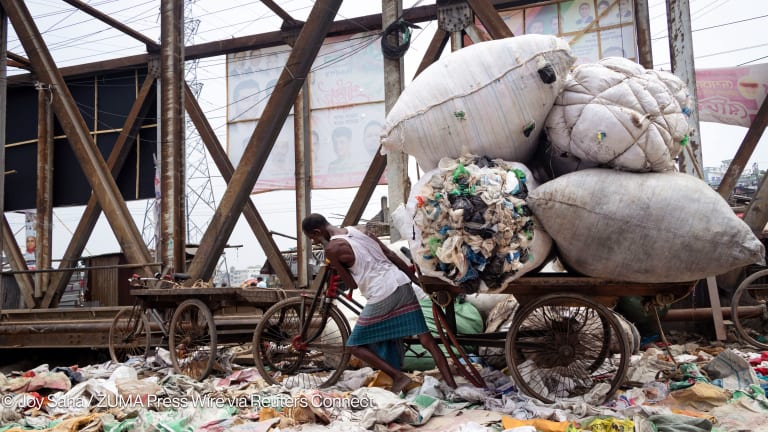
Pakistan is simplifying procedures to channel and expedite overseas aid flows to the Prime Minister’s Flood Relief Fund.
The Islamic nation’s finance ministry said that all donations to the fund would be exempt from tax. The State Bank of Pakistan will collect donations to the Prime Minister’s Flood Relief Fund. A coordination committee that will contact international non-governmental organizations and the top 500 taxpayers in Pakistan for donations would also be set up.
The international community has so far committed some USD102 million in humanitarian aid for Pakistan’s flood victims. Of the sum, between USD10 million to USD20 million was coursed through official channels, Dawn.com reports.
Pakistani Prime Minister Yousuf Raza Gilani requested more assistance from foreign donors, according to The Gazette.
United Nations chief Ban Ki-moon urged donors to give “generously” to support relief efforts in the flood-ravaged nation. Ban said the adverse effects of the monsoon floods were as devastating as the 2005 earthquake that struck the nation in 2005 and claimed 80,000 lives.
“Let me stress now that we must also give thought to medium and longer-term assistance. This will be a major and protracted task,” Ban said. “I appeal for donors to generously support Pakistan at this difficult time.”
Pakistan’s monsoon floods, the worst in 80 years, will cause “major harm to the economy,” according to the International Monetary Fund.
“They are very likely to cause major harm to the economy in terms of loss of output and budgetary consequences,” an IMF spokesman told Reuters. “In these circumstances, support from the international community will be critical.”
The U.K. Disasters Emergency Committee, an umbrella organization of 13 British aid agencies, has so far mobilized 5 million pounds (USD7.9 million) for Pakistan. DEC has provided food aid, hygiene kits and emergency boats to assist some 300,000 flood survivors, Third Sector reports.
Meanwhile, the U.S. Agency for International Development is helping to build temporary shelters for Pakistanis whose homes were destroyed by the flooding. The U.S. aid agency is airlifting heavy-duty waterproof plastic sheeting that will be used with locally-purchased wood, nails and rope to construct the shelters. USAID is supporting 13 NGOs and four international organizations working in areas affected by floods. The U.S. has so far committed USD35 million in flood aid for Pakistan.
Donors are also rushing emergency health assistance to communities affected by the monsoon floods.
World Vision has opened an emergency primary health clinic in the Lower Dir district. Most of the clinic’s patients are suffering from diarrhea and acute respiratory infections. The Christian charity, which seeks to reach 150,000 people in the next three months, warned of an outbreak of water-borne diseases among Pakistani flood survivors, according to Christian Today.
Save the Children also provided urgent medical care to residents in Batagam, who were suffering from respiratory infections, diarrhea, scabies, and eye and skin infections. The organization noted that the prices of essential food items in the nation surged due to lack of supplies and the destruction of roads.
“The most urgent need is to ensure food supplies and to restore transportation networks to accelerate the delivery of needed aid,” said Mohammed Qazilbash, Save the Children’s spokesperson in Pakistan.
GlaxoSmithKline Pakistan has donated medicines to the International Medical Corps to help treat some 40,000 flood victims. The medicines will be distributed in Charsadda, Nowshera and Peshawar.








